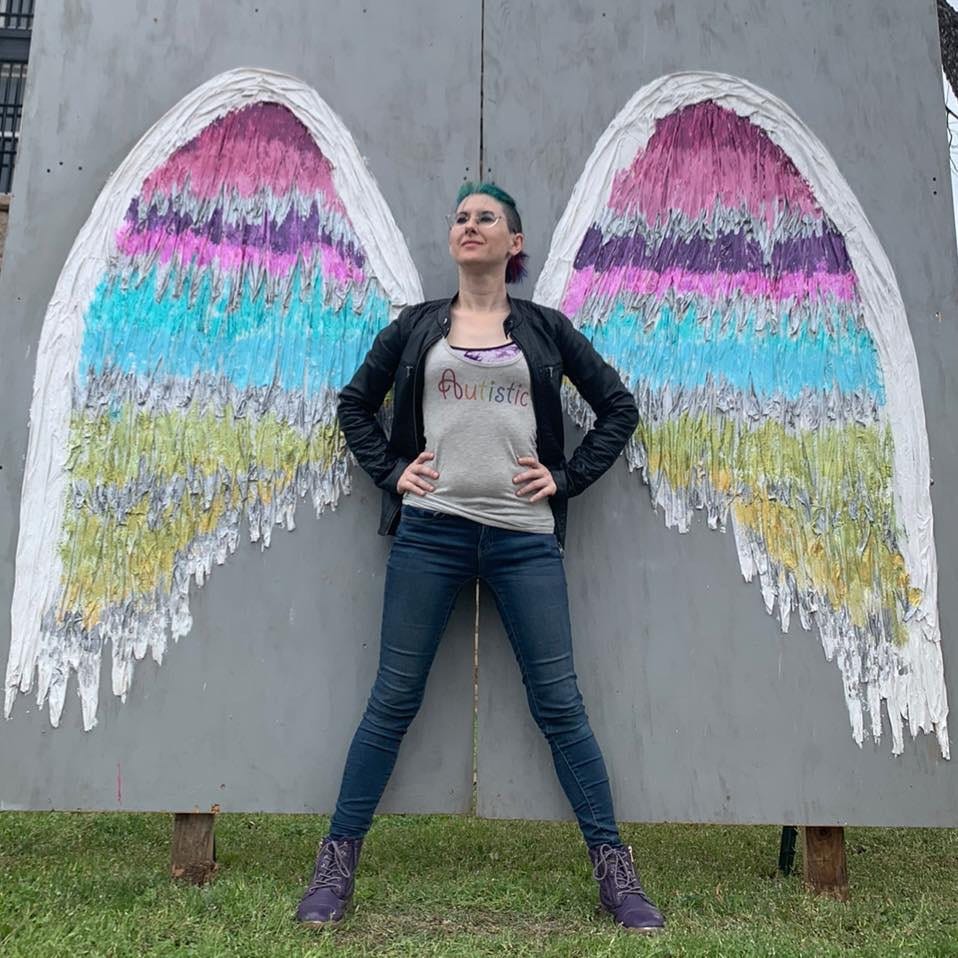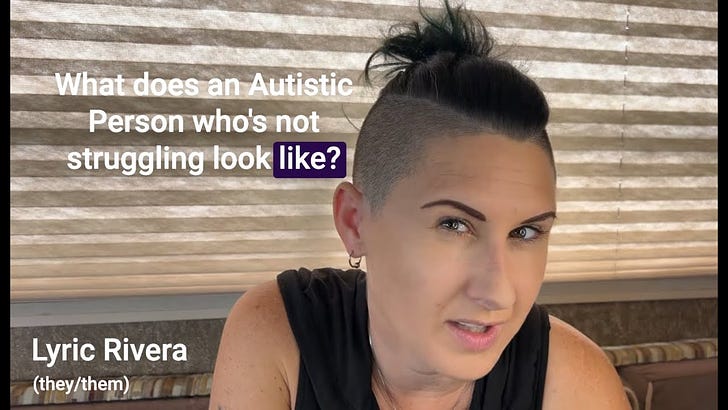What Does an Autistic Person Who is NOT Struggling Look Like? Would we even recognize their Autism?
Could an Autistic Person who's been medically diagnosed lose their diagnosis if they gain enough support to thrive in life?
UPDATE: Video added for subscribers on 3/14/2024. The Public gained access to this video on 3/22/24.
The diagnostic criteria for diagnosing Autism in Autistic People is primarily based on weaknesses and deficits, talking about (ONLY) the ways that Autistic People can struggle in society or what we look like in distress. These limited criteria fail to describe what it looks like if Autistic People are doing well, have all of their needs accommodated, and have enough support in their lives.
According to the CDC and the DSM-V, to meet diagnostic criteria for Autism, "a child must have persistent deficits in each of three areas of social communication and interaction plus at least two of four types of restricted, repetitive behaviors."
I'm going to choose to move past the fact that the CDC used the word "child," ignoring the fact that Autistic People can also be adults and that many of us won't be diagnosed in childhood (if we're diagnosed at all) - mostly because I have so many thoughts on that issue for a complete article (let me know if you want me to expand on that thought in the comments below).
Let's get back to the main qualifier the CDC lists that one must have for an Autism diagnosis: "deficits in social-emotional reciprocity," "deficits in nonverbal communicative behaviors used for social interaction," "deficits in developing, maintaining, and understanding relationships," as well as at least two of the following: "stereotyped or repetitive motor movements, use of objects, or speech," "insistence on sameness, inflexible adherence to routines, or ritualized patterns of verbal or nonverbal behavior," "highly restricted, fixated interests that are abnormal in intensity or focus," and/or "hyper- or hyporeactivity to sensory input or unusual interest in sensory aspects of the environment."
While the first three items are required for every Autistic Person, the last four items won't apply to every Autistic Person - because a minimum of two (out of four of the "behavioral" items) are required to qualify as Autistic medically. I, personally, check all of the boxes, but some Autistic people may check as few as two of the behavioral items.
Another qualifier listed when diagnosing Autism is that "symptoms cause clinically significant impairment in social, occupational, or other important areas of current functioning," - meaning Autism can ONLY be diagnosed if a person is struggling and feels as if being Autistic is causing significant troubles in their work, school, social life, and other areas of "current functioning."
At least they seem to understand that functioning fluctuates.
However, there are still many significant limitations in the way they've described Autistic People (only by our struggles, trauma, pain, and distress).
What if an Autistic Person isn't "struggling" (as is outlined above)? What if an Autistic Person is thriving?

Then, according to the definition above, would they qualify as Autistic? Could an Autistic Person who's been medically diagnosed lose their diagnosis if they gain enough support to thrive in life, and will they get it back if they find themselves "struggling enough" again in the future?
Who decides how much struggle is enough struggle for an Autistic Person to qualify as Autistic? Non-autistic psychologists?
When I was diagnosed Autistic at the age of 29, I was in a time of crisis.
I was struggling, in survival mode, definitely not thriving.
For most of my adult life, since leaving school at eighteen, I'd done reasonably well by leaning into my strengths and avoiding as many of my weaknesses as I could.
Because I had enough support for my life's demands, and by not forcing myself into environments and situations I was poorly suited for, I'd created a life that worked well for me.
It wasn't until I decided to push myself into a career and a workplace that would require me to "overcome" and face my weaknesses head-on (with little to no support and constant scoldings and blame whenever I struggled or made mistakes) that I fell apart (mentally and physically).
Paid subscribers have access to more of this story as a thanks for supporting my work.
Keep reading with a 7-day free trial
Subscribe to NeuroDivergent Rebel’s Substack to keep reading this post and get 7 days of free access to the full post archives.




